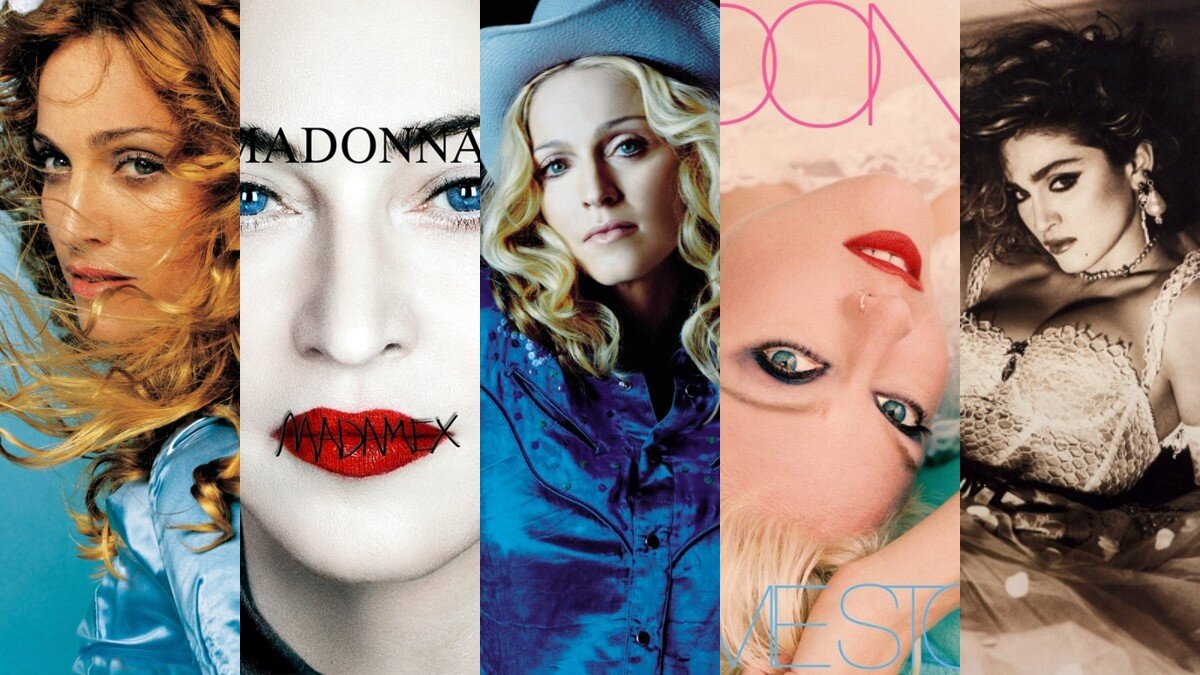Editor’s Note: From Albumism’s inception back in 2016, we’ve remained unabashedly and unequivocally passionate about our mission of celebrating the world's love affairs with albums past, present and future.
But while our devotion to the album as an art form has remained steadfast, as evidenced by our deepening repository of individual album tributes and reviews, we’ve admittedly seldom taken the opportunity to explicitly articulate our reverence for the virtues of artists’ complete album repertoires as a whole.
Hence why we’ve decided to showcase what we believe to be the most dynamic discographies of all time in this recurring series. In doing so, we hope to better understand the broader creative context within which our most beloved individual albums exist, while acknowledging the full breadth of their creators’ artistry, career arcs, and overall contributions to the ever-evolving musical landscape.
We hope you enjoy this series and be sure to check here periodically for the latest installments.
MADONNA
Studio Albums: Madonna (1983) | Like a Virgin (1984) | True Blue (1986) | Like a Prayer (1989) | Erotica (1992) | Bedtime Stories (1994) | Ray of Light (1998) | Music (2000) | American Life (2003) | Confessions on a Dance Floor (2005) | Hard Candy (2008) | MDNA (2012) | Rebel Heart (2015) | Madame X (2019)
I’m sitting at my home office desk looking at all of my Madonna albums lined up around me—almost 40 years’ worth of artistry—and one word immediately comes to mind: rebellion.
On her infectious 1983 self-titled debut album, Madonna wrote over half of the songs—thus ensuring she wouldn’t be labeled a studio puppet as was the case for many of the women who made dance albums before her. A year later, she bucked against Reagan-era American “family values” conservatism by topping the mainstream pop charts with “Like A Virgin” —a song shellacked with sexual innuendo—and also proudly proclaiming sexual independence on her album cover by wearing a “Boy Toy” belt.
Every album Madonna has made since those first two bedrock releases has trafficked in her personal brand of revolution against what music and cultural critics thought she should do, in defiance of what parents of her younger fans wished she would do, and in opposition to the unspoken rules of how long a female pop star’s career should last.
1994’s softer and more mature Bedtime Stories rebelled against the notion that her music career would never rebound after the cultural lashing she received with her sexually-charged 1992 album Erotica and its R-rated book companion. Not only did she score her biggest number one hit with Bedtime’s ballad “Take A Bow,” but she also clapped back against all those Erotica-bashing pearl-clutchers with Bedtime’s iconic kiss-off track, “Human Nature.”
The critical and commercial successes of Ray of Light (1998), Music (2000), Confessions on a Dance Floor (2005), and Hard Candy (2008) revised the long-held notion that a female pop star couldn’t be viable after she turns 40. And with the polarized response to 2019’s Madame X—a largely un-danceable album of global music influences, protest songs and darker themes—it's clear Madonna is still going against the grain by not ceding to demands that she make another Confessions-like dance album.
Through this rebellious journey of making albums that dare to lengthen her career in mainstream pop music while revising her unparalleled cultural impact, Madonna has clearly defined for women in music what it means to be a truly liberated and revolutionary artist.
Mark’s 3 Favorite Madonna Albums of All Time:
1. Ray of Light (1998)
2. Music (2000)
3. Confessions on a Dance Floor (2005)
VISIT Madonna’s Official Store
LISTEN & WATCH:

